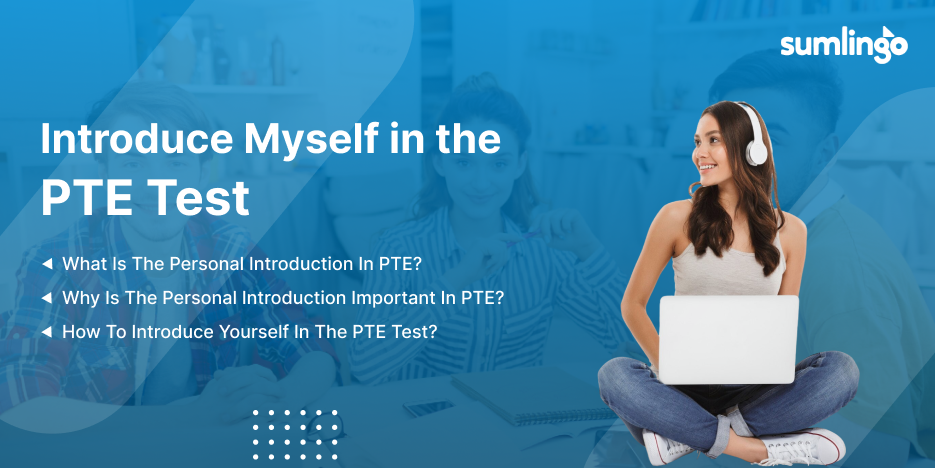The PTE Academic 2026 is a computer-based English language proficiency test designed to assess real-life English skills for academic and professional purposes. It is accepted globally for student visas, immigration, and university admissions. It evaluates Speaking & Writing, Reading, and Listening skills through integrated task types. Here’s a detailed section-by-section guide with focused tips and techniques to help you maximize your performance in the PTE Academic 2026.
Speaking & Writing Section (approx 76 – 84 minutes)
This combined section is the longest and arguably the most crucial, as it contributes significantly to the overall communicative skills score. It tests your ability to express ideas clearly, fluently, and accurately in spoken and written English.
Are you ready to test your skills?
Speaking Section Tips
- Practice Reading Aloud Daily: This improves both pronunciation and fluency by training your mouth and mind to work together under timed conditions.
- Maintain a Steady, Natural Pace: Speaking too fast or too slow can affect fluency scores; aim for a rhythm that mirrors real-life conversation.
- Use Proper Intonation and Stress: Stress important words and vary your tone to make your speech sound more natural and easier to understand.
- Avoid Fillers and Long Pauses: Hesitations and filler words like um or uh can lower your fluency score; focus on smooth, continuous speech.
- Follow a Structured Format for Complex Tasks: In Describe Image or Re-tell Lecture, use a template with an introduction, body, and summary to stay organized.
- Improve Short-term Memory with Repeat Sentence Practice: Train yourself to retain sentence structures and vocabulary by listening and repeating with full accuracy and tone.
- Record and Analyze Your Performance: Recording your speaking responses helps identify weaknesses in pronunciation, clarity, and delivery over time.
Writing Section Tips
- Spend Time Planning Before Writing: Organizing your thoughts into a basic structure will make your writing more logical, coherent, and focused.
- Use Clear Topic Sentences in Paragraphs: Start each paragraph with a sentence that defines its main idea. This improves flow and helps the reader follow your logic.
- Maintain a Formal and Academic Tone: Avoid slang or overly casual expressions; academic writing requires precision, clarity, and professional vocabulary.
- Use Complex Sentences Correctly: Combine clauses using conjunctions and relative pronouns to show grammatical range without losing clarity or meaning.
- Stay Within Word Limits: Exceeding or falling short of the required word count can hurt your score, so stay within the word limit in the essay.
- Review Grammar and Punctuation Carefully: Minor grammar or punctuation mistakes can reduce your overall writing score. Review it quickly but thoroughly before submitting.
- Practice Typing with Speed and Accuracy: Since the exam is computer-based, typing fluently without errors saves time and reduces stress under the timer.
Reading Section (approx 23-30 minutes)
This section evaluates your ability to comprehend written academic texts and identify main ideas, supporting details, and logical relationships. Time management is essential as the section includes several integrated and standalone question types.
- Skim the Text Before Reading Questions: Quickly reading the passage first gives you a sense of its structure, helping you locate answers faster and more accurately.
- Focus on Grammar in Fill-in-the-Blanks: Choose words that are grammatically correct and have contextual meaning; understanding grammar rules is key to answering correctly.
- Learn Common Academic Collocations: Phrases like make a decision or highly likely often appear in blanks; knowing them boosts both accuracy and speed.
- Use Logical Markers for Reordering Paragraphs: Look for connectors like however, thus, or pronouns to determine the correct flow of sentences logically.
- Eliminate Wrong Choices in Multiple Choice: Don’t look for the right answer first, start by ruling out incorrect ones to narrow your options and increase accuracy.
- Read Question Stems Carefully: Identify keywords and what exactly is being asked to avoid being tricked by similar-sounding but incorrect options.
- Manage Time Across All Tasks: Don’t get stuck on one question. Divide your time wisely to attempt all parts without rushing the last few.
Are you ready to test your skills?
Listening Section (approx 31-39 minutes)
This section assesses your ability to understand spoken English in academic and everyday contexts. Since each audio clip is played only once, developing active listening and note-taking skills is crucial.
- Take Effective Notes During Listening: Use symbols and abbreviations to capture main ideas quickly and supporting details, which helps in summaries and answers.
- Focus on Meaning, Not Just Words: Instead of trying to remember every word, listen for the overall message, tone, and purpose of the speaker.
- Practice Writing from Dictation Daily: This improves your listening accuracy, memory, and spelling all critical for scoring well in the final task.
- Eliminate Distractors in Multiple Choice: Only choose answers directly supported by the audio; ignore options that contain added, twisted, or incomplete information.
- Improve Typing While Listening: Simulate real test conditions where you listen and type simultaneously, especially for Fill in the Blanks and Write From Dictation.
- Learn to Predict Missing Words: For the Select Missing Word task, use sentence context, tone, and grammar to anticipate the correct final word.
- Re-listen to Audio with Transcripts: After practice, compare your understanding with the transcript to catch errors in your note-taking or comprehension.
The PTE Academic 2026 demands more than just strong English skills. It requires familiarity with task types, effective time management, and targeted practice. By focusing on each section with the right strategies, you can optimize your preparation and improve your chances of achieving a high score.
Also Read:










